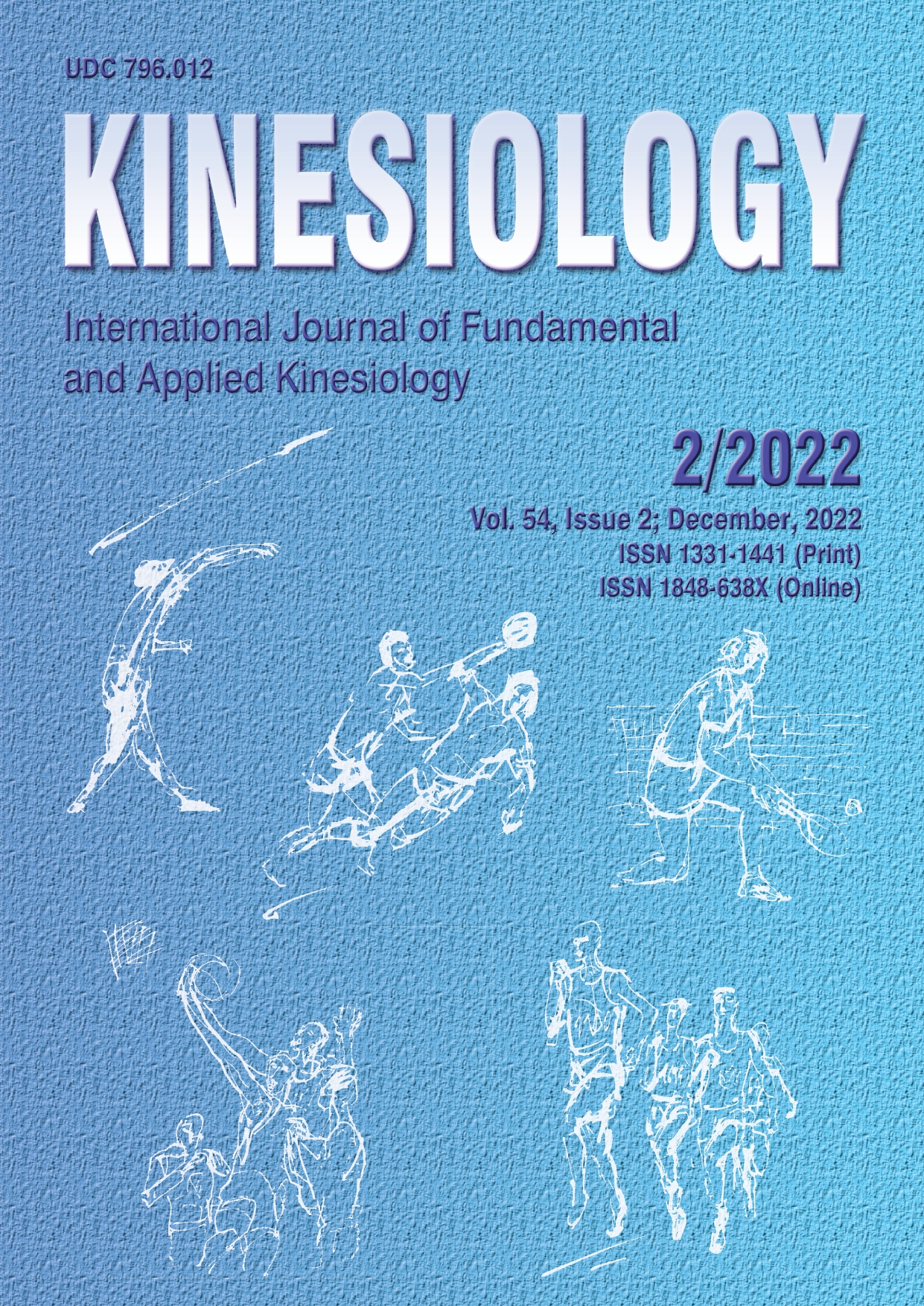PERFECTIONISM AND AFFECT AS DETERMINANTS OF SELF-PERCEIVED MOTOR COMPETENCE IN PRIMARY SCHOOL CHILDREN
Abstract
The aim of this study was to analyze the primary school students’ perception of their motor competence in the area of Physical Education, with respect to the affective domain and improvement. The sample consisted of 428 primary school students aged between 8 and 12 years (M=10.43; SD=0.837) (Castilla La Mancha, Spain). Perceived motor competence (PMC) was measured by the Perception of Competence Questionnaire (POC); perfectionism was measured by the three subscales of the Child Perfectionism Questionnaire, and, finally, affectivity was assessed by the PANAS (Positive and Negative Affect Schedule) questionnaire. Positive correlations were obtained between all the dimensions of the PMC and self-improvement (p<.05). Significant gender differences were found in the PMC dimension Peers and Self-Experience, with higher scores in males (p<.05). Differences were also found in the PMC dimension Peers as a function of weight status, being lower in the overweight group (p<.05). Age was related to self-experience being higher the older one was (p<.05). A model was generated that explained 23.7% of PMC with the total dimension of self-improvement and weight status. Three distinct profiles, called high, medium and low self-improvement, were detected. These groups in turn showed an analogy in perceived motor competence, high, medium and low, the result also obtained in the regression analysis (p<.05). These results extend the relationship between perceived motor competence and self-improvement in primary school children and are potentially of interest to the fields of education and psychology.
Key words: perceived motor competence, perfectionism, affective domain, primary school, health
Downloads
Published
How to Cite
Issue
Section
License

This work is licensed under a Creative Commons Attribution-NonCommercial 4.0 International License.
At Faculty of Kinesiology we recognize that access to quality research is vital to the scientific community and beyond. Kinesiology is non-profit journal and all costs of publishing and peer review process are covered by the publisher itself or other funding sources like Ministry of Science and Education of the Republic of Croatia. Full text papers are also available free of charge at http://hrcak.srce.hr/kineziologija. There are no restrictions on self archiving of any form of paper (preprint, postprint and publisher's version).
Articles are distributed under the terms of the CC BY - NC 4.0
Kinesiology does not charge any fees to authors to submit or publish articles in our journal.


